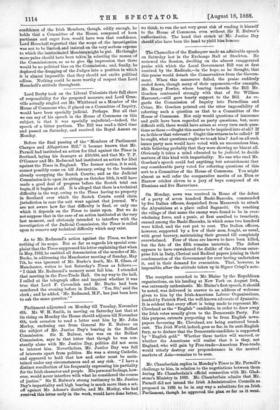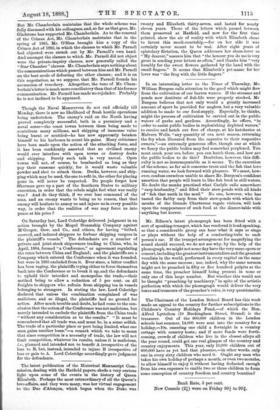Mr. Chamberlain replies in Monday's Times to Mr. Parnell's challenge
to him, in relation to the negotiations between them during Mr. Chamberlain's official connection with Mr. Glad- stone's Ministry in 1885. Mr. Chamberlain admits that Mr. Parnell did not intend the Irish Administrative Councils as proposed in 1885 to be in any way a substitute for an Irish Parliament, though he approved the plan so far as it went. But Mr. Chamberlain maintains that the whole scheme was fully discussed with his colleagues, and, so far as that goes, Mr. Gladstone has supported Mr. Chamberlain. As to the renewal of the Crimes Act, Mr. Chamberlain maintains that in the spring of 1885, Mr. O'Shea brought him a copy of the
Crimes Act of in which the clauses to which Mr. Parnell had objected were struck out by Mr. Parnell's own hand. And amongst the clauses to which Mr. Parnell did not object were the privateinquiry clauses, now generally called the "Star Chamber" clauses. Mr. Chamberlain says nothing about the communications which passed between him and Mr. Parnell en the best mode of defeating the other clauses ; and it is on this negotiation, as we suppose, that Mr. Parnell founds his accusation of treachery. Altogether, the tone of Mr. Cham- berlain's letter is much more conciliatory than that of his former communication. Mr. Parnell has made no rejoinder. Probably he is not inclined to be appeased.



































 Previous page
Previous page